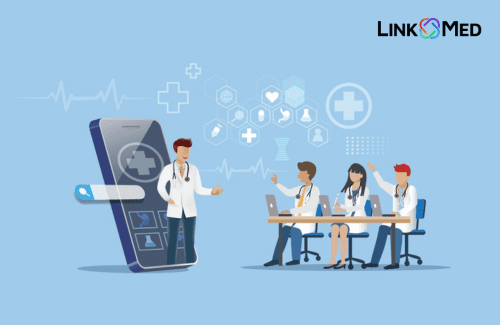The Rise of Digital Healthcare Platforms: Transforming Medical Education

Medical education platforms have been at the heart of changes in the way learning traditionally occurs, making the education of medicine more accessible, flexible, and current. The training provided through such platforms indeed constitutes an innovative method for learning and skill-building that sustains medical professionals throughout their lifetime, primarily in the field of Continuing Medical Education (CME).
The Changing Landscape of Medical Education
Historically, education in medicine was confined to a physical classroom, textbooks, and clinical rotation. However, with the advent of digital technologies, this has changed considerably in medical education. Now, medical education platforms allow students and healthcare professionals to access a realm of knowledge that surpasses that of a physical classroom.
Digital platforms have also introduced remote learning, something that has become an important aspect, especially in increasing global challenges such as COVID-19. Another effect of this shift to online platforms is that it increases access to medical education and further facilitates access to updated information and training materials by practitioners in various regions.
The Role of Continuing Medical Education
The most significant area where the digital platforms have left their impact is in CME. Continuing Medical Education helps medical professionals to update themselves about changes in various branches of medical science, technologies, and treatments. Previously, attending CME events had to be done largely through physical conferences or seminars. In these modern times, healthcare professionals can indeed participate in activities related to CME through online modes according to their own schedule and convenience.
These platforms offer everything from various courses and webinars to certification programs, targeting the specific needs of medical practitioners. Physicians, nurses, and other health professionals can thus meet their healthcare education needs through these methods without necessarily compromising their work schedules or different geographical limitations.
Improving Access to Medical Information
In addition to CME, it is very important for the medical information platforms to update healthcare professionals on current research, care guidelines, and best practices in their respective fields. Such platforms ensure an integrated approach whereby users can get peer-reviewed journals, research articles, and expert opinions on various medical conditions and their best treatments with ease and speed. These platforms democratize medical knowledge, ensuring that experienced professionals and medical students alike remain updated on the latest happenings in healthcare.
Healthcare Continuing Education: A Lifetime Commitment
The increasing shift towards digital platforms reflects an increasingly incessant recognition of healthcare continuing education. In this ever-evolving world of medicine nowadays, the professionals require updates about knowledge and skill-building continuously to maintain competence and provide quality care. The convenience offered by the digital platforms makes this ongoing education more feasible and seamless into daily practice. For example, online medical education provides personalized learning, in which professionals can tailor their education to meet specific interests and needs. Besides being more engaging, this ensures that professionals focus on areas of critical importance for their practice.
Conclusion
There is no doubt that the rise of different digital healthcare platforms has changed the world of medical education beyond recognition. From the flexibility provided by the medical education platforms to accessibility to CME and extensive resources provided by the medical information platforms, these tools are reshaping how medical professionals learn and grow throughout their careers.
